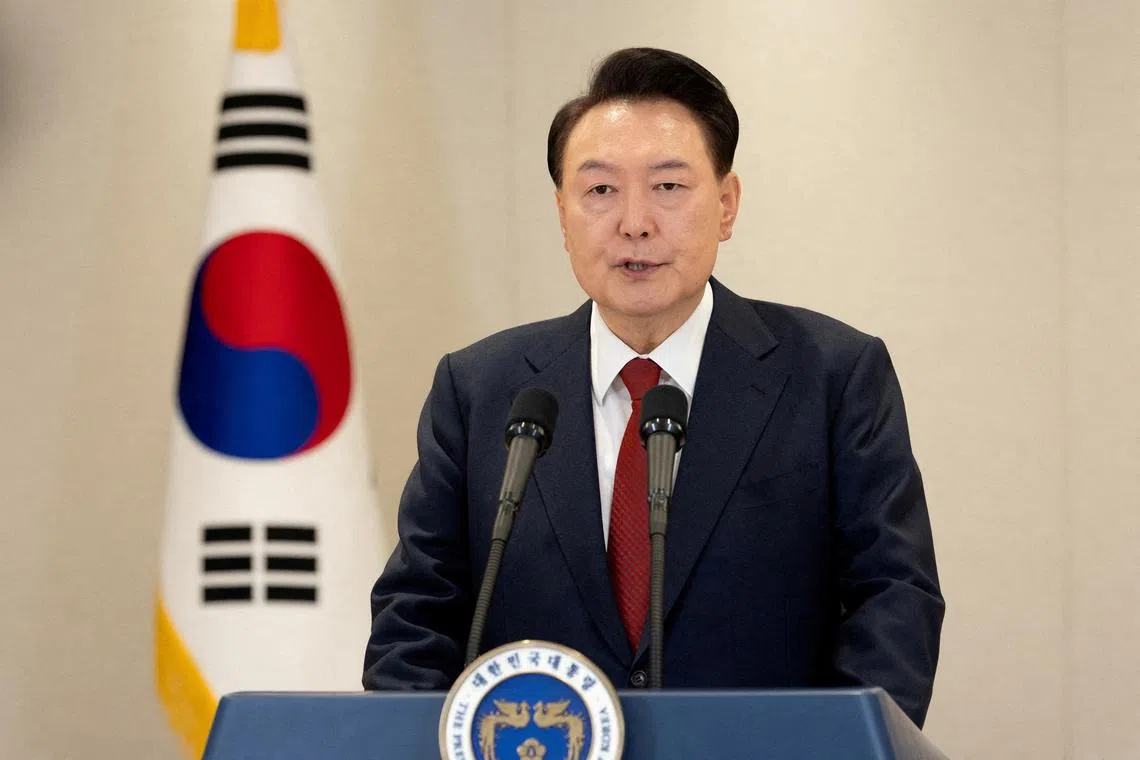South Korea’s investigators seek arrest warrant for Yoon over martial law
Sign up now: Get insights on Asia's fast-moving developments

A Constitutional Court trial is ongoing into whether to reinstate suspended President Yoon Suk Yeol or remove him permanently from office.
PHOTO: REUTERS
Follow topic:
SEOUL – South Korean investigators have sought an arrest warrant for suspended President Yoon Suk Yeol over his short-lived imposition of martial law, an official said on Dec 30, the first time an incumbent president has faced such action.
Mr Yoon has failed to respond to multiple summons for questioning by the police and the Corruption Investigation Office for High-ranking Officials, who are jointly investigating whether his Dec 3 martial-law declaration
The police have tried but failed to successfully raid the presidential office as part of the investigation.
A Seoul court will decide whether to issue an arrest warrant following the request.
Insurrection is one of the few charges for which a South Korean president does not have immunity.
Mr Yoon Kab-keun, a lawyer for the suspended President, said the arrest request was “unfair” and the anti-corruption agency has no authority to do so.
“Emergency martial law is within the president’s authority,” the lawyer told reporters outside the Seoul Western District Court after submitting a written opinion about the arrest warrant request as well as a letter of appointment of lawyers.
Mr Yoon was suspended from presidential powers after being impeached by Parliament earlier in December
Masked martial law troops equipped with rifles, body armour and night-vision equipment entered Parliament where they faced off with staffers who opposed them with fire extinguishers.
The decree lasted just hours until Parliament voted it down and Mr Yoon backed down.
The move shocked the nation, which has been a democracy since the 1980s, and caused international alarm among allies, such as the US, and trading partners with Asia’s fourth-largest economy.
A Constitutional Court trial to determine whether to reinstate Mr Yoon or remove him permanently from office is ongoing. It has 180 days to reach a decision.
On Dec 27, the court held its first preparatory hearing, where a request by Mr Yoon's lawyers for a postponement to better prepare for the proceedings was denied. The court said it would move swiftly. The next hearing is due on Jan 3. REUTERS

